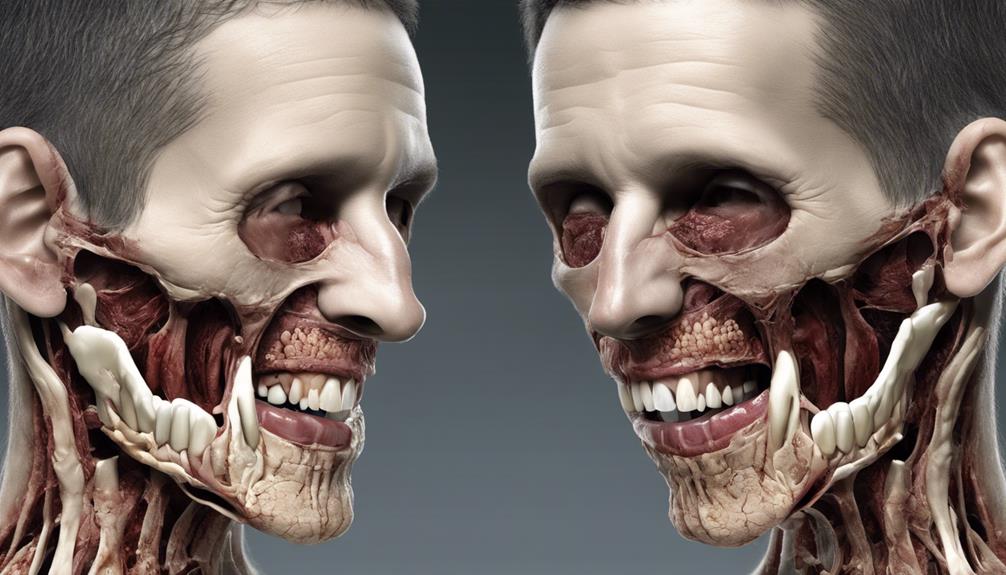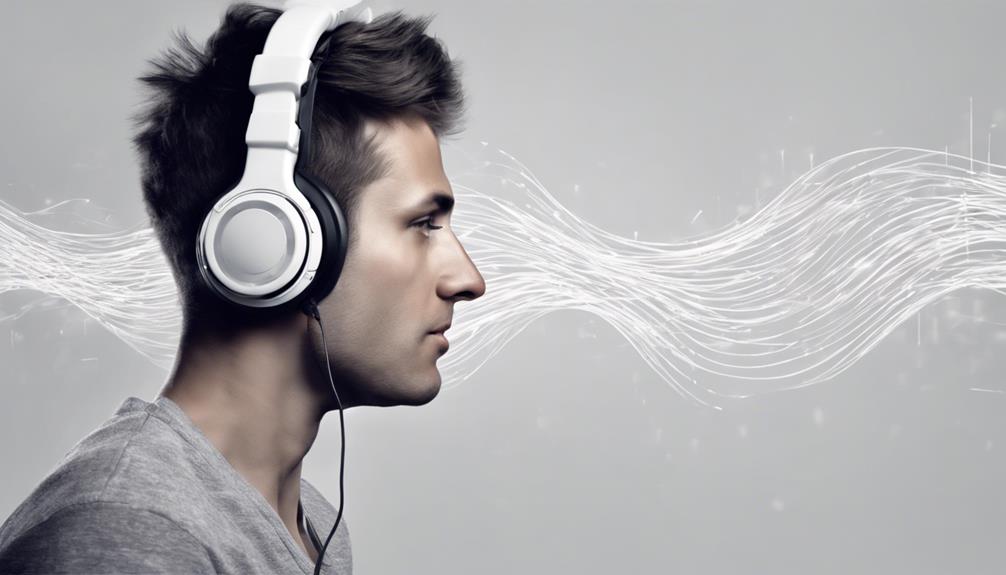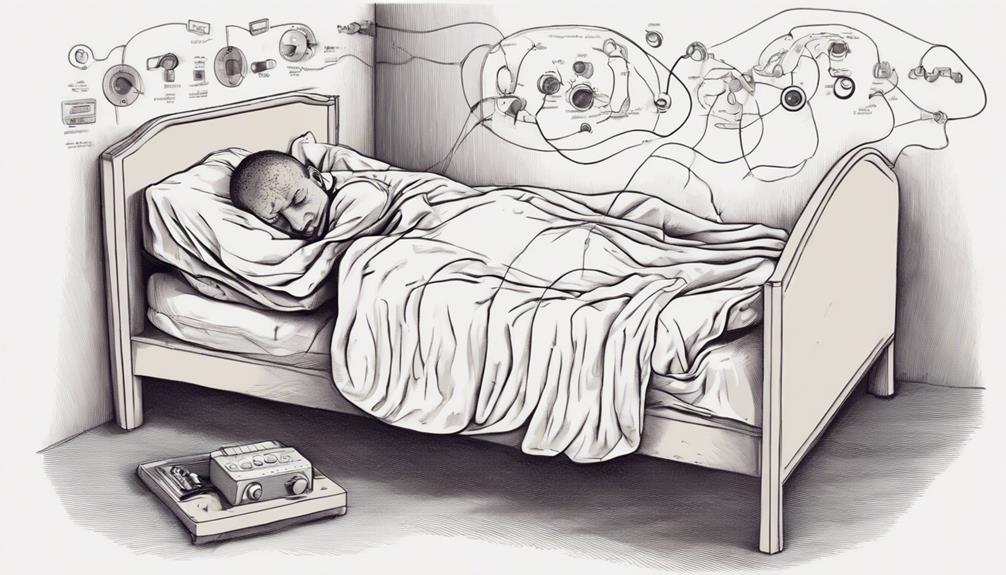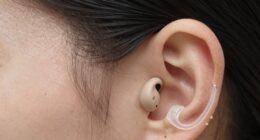Imagine a delicate network of interconnected pathways within our bodies, where the health of one system can impact another in unexpected ways.
The intricate relationship between our teeth and our hearing may surprise many.
As we unravel the subtle yet significant link between dental health and auditory function, a deeper understanding emerges, shedding light on how something as seemingly separate as bad teeth can have a profound effect on our ability to perceive sound.
Let's explore this intriguing connection further and uncover the intricate mechanisms at play.
Key Takeaways
- Dental infections can lead to inflammation affecting blood circulation to the ears, potentially causing hearing loss.
- TMJ-related inflammation can disrupt sound signal transmission to the brain, impacting auditory nerve function.
- Impacted wisdom teeth can cause inflammation that disrupts blood flow to the inner ear, affecting hearing mechanisms.
- Temporary inflammation post-tooth extraction may result in muffled hearing or ear pain, requiring effective post-extraction care.
Dental Infections and Hearing Loss
Dental infections can lead to inflammation in the body, potentially causing disruptions in blood circulation that are linked to hearing loss. When harmful oral bacteria from these infections enter the bloodstream, they can interfere with the normal flow of blood to the ears. This disruption can have a direct impact on the delicate structures within the inner ear responsible for transmitting sound signals to the brain. The inflammation triggered by dental infections can affect the nerves associated with hearing, leading to potential issues in auditory perception.
Complications arising from untreated dental infections, such as abscesses, can further exacerbate problems in the inner ear and contribute to hearing difficulties. Proper treatment of these infections is crucial in preventing potential hearing loss associated with oral health issues. It's essential to address dental problems promptly to mitigate the risks posed to the intricate mechanisms involved in hearing function. By maintaining good oral health practices and seeking timely dental care, individuals can help safeguard their hearing abilities and overall well-being.
Impact of TMJ on Hearing
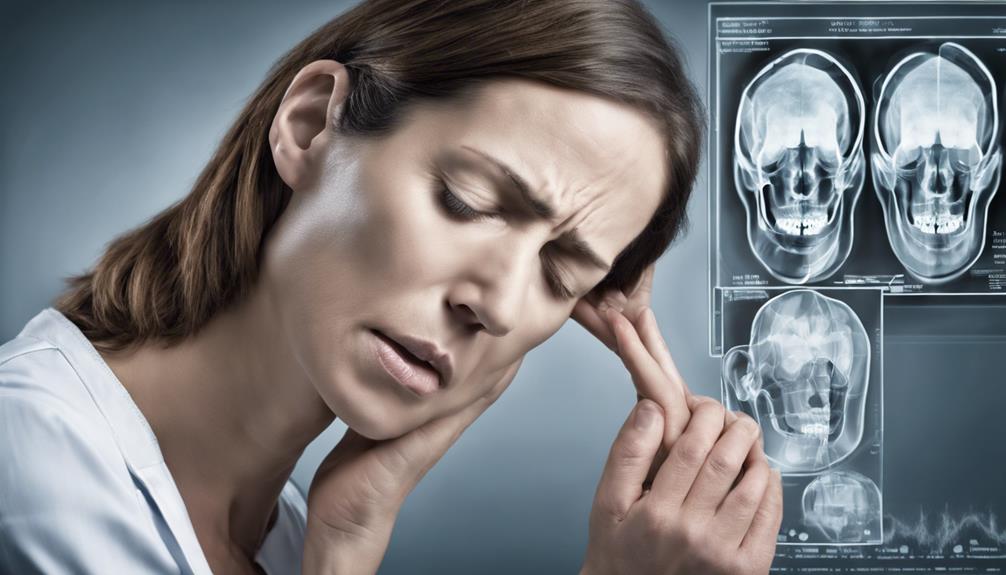
The impact of TMJ on hearing can be significant due to the potential inflammation affecting the Eustachian tube, leading to possible hearing issues. This connection between TMJ disorder and hearing loss underscores the intricate relationship between dental health and auditory function. Here are four key points to consider:
- Inflammation and Hearing: Chronic inflammation from TMJ can result in pain and discomfort, affecting the inner ear nerve pathway and potentially contributing to hearing loss.
- TMJ Disorder Effects: TMJ-related hearing loss occurs as inflammation impacts the auditory nerve, disrupting the transmission of sound signals to the brain.
- Symptoms and Hearing Changes: Symptoms of TMJ disorder, such as jaw pain and muscle tension, can influence the function of the Eustachian tube, leading to changes in ear function and hearing capabilities.
- Treatment and Restoration: Seeking treatment from a dentist or specialist for TMJ disorder can help alleviate inflammation-related hearing problems, potentially restoring auditory function and overall quality of life.
Wisdom Teeth and Auditory Issues
Impacted wisdom teeth can have a direct impact on auditory health by causing infections and inflammation that restrict blood vessels, potentially leading to hearing issues. The inflammation associated with impacted wisdom teeth can affect blood flow to the inner ear, disrupting the delicate mechanisms responsible for hearing. Infections stemming from these dental issues can further complicate matters by interfering with proper blood circulation to the auditory system, potentially resulting in hearing loss.
The proximity of wisdom teeth to the jaw joint and nerves can exacerbate auditory problems, as inflammation and nerve pain can radiate to the ears, causing discomfort and potentially affecting hearing. Proper dental hygiene and timely intervention for impacted wisdom teeth are crucial in mitigating the risk of developing auditory issues. By addressing wisdom teeth problems promptly, individuals can help safeguard against hearing problems linked to inflammation and blood flow disturbances, ultimately preserving their auditory health.
Tooth Extraction and Hearing Problems
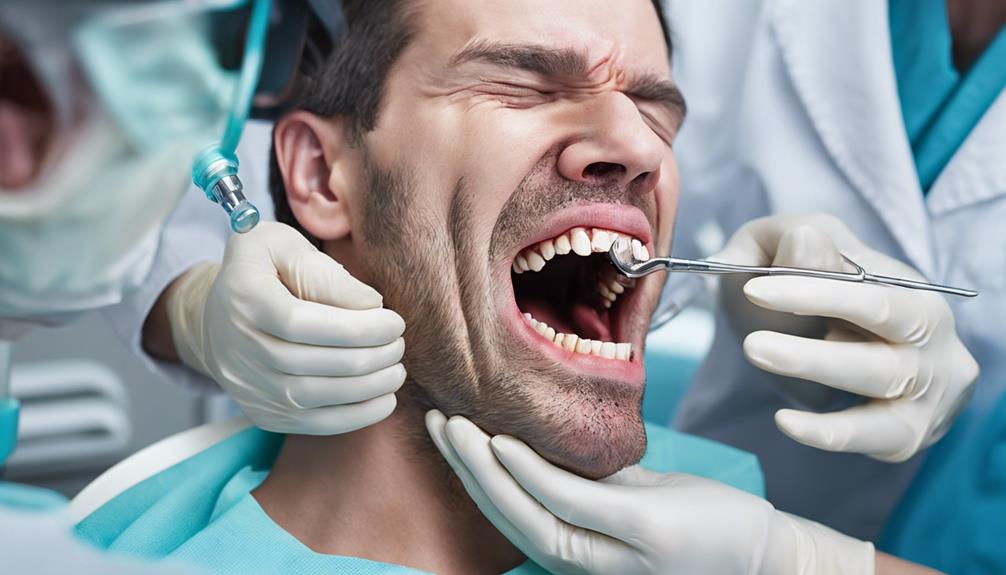
Experiencing tooth extraction may lead to temporary inflammation, potentially causing issues such as muffled hearing or ear pain. When inflammation occurs post-tooth extraction, it can affect blood flow to the inner ear, impacting the function of auditory cells and leading to temporary hearing problems. Proper post-extraction care is crucial in managing inflammation to prevent prolonged hearing issues. Fortunately, hearing loss resulting from extraction-related inflammation is typically temporary and tends to resolve as the inflammation subsides. Consulting with a dentist following a tooth extraction is essential to address any concerns related to hearing problems promptly.
- Temporary inflammation post-tooth extraction can disrupt blood flow to the inner ear.
- Inflammation affecting auditory cells may result in muffled hearing or ear pain.
- Effective post-extraction care is vital for managing inflammation and preventing prolonged hearing problems.
- Consulting a dentist post-extraction can help address and alleviate any hearing-related issues that may arise.
Preventing Dental-Related Hearing Loss
Regular dental care is crucial for preventing potential hearing loss associated with dental issues. Good oral hygiene, such as daily brushing and flossing, is essential to prevent tooth infections that could lead to hearing problems.
Regular dental check-ups are vital for early detection of any dental problems that may impact hearing health. Timely treatment of issues like impacted wisdom teeth can prevent infections and inflammation that might affect blood flow to the ears, potentially causing hearing loss.
Promptly addressing TMJ disorder is important as it can help reduce inflammation that may impact the Eustachian tube, affecting auditory cells in the inner ear. Proper blood circulation to the ears through effective oral health management can help individuals take preventive measures against dental-related hearing loss.
Prioritizing dental care can safeguard against potential complications that could lead to issues with hearing in the future.
Frequently Asked Questions
What Are Three 3 Health Problems That Can Result From Poor Oral Hygiene?
When we neglect oral hygiene, we expose ourselves to various health risks. Gum disease can lead to tooth loss. Tooth decay causes pain and sensitivity. Oral infections can spread to other tissues, potentially causing abscesses and systemic health issues.
These consequences of poor oral hygiene highlight the importance of maintaining good dental care habits for overall health and well-being.
Can Rotten Teeth Affect Your Hearing?
Yes, rotten teeth can indeed affect hearing. When teeth decay, harmful bacteria can enter the bloodstream, causing inflammation that impacts blood flow to the ears. This inflammation can narrow blood vessels, affecting circulation to the inner ear and potentially leading to hearing loss.
Neglecting dental care and allowing teeth to decay increases the risk of inner ear complications that can harm hearing function. Proper oral hygiene and timely treatment are crucial to prevent such issues.
Can a Bad Tooth Cause Inner Ear Problems?
Yes, a bad tooth can cause inner ear problems. When dental issues like infections or decay are left untreated, bacteria can travel from the mouth to the inner ear, disrupting its functions.
This bacterial spread can lead to symptoms such as dizziness, vertigo, tinnitus, and even hearing loss. Maintaining good oral hygiene is essential to prevent these complications and safeguard overall health.
What Are the Symptoms of Poor Dental Hygiene?
Poor dental hygiene manifests through symptoms like bad breath, tooth decay, gum disease, and tooth sensitivity. Signs of poor oral health include a persistent bad taste, swollen or bleeding gums, and loose teeth.
Neglect can lead to cavities, abscesses, tooth loss, inflamed gums, tooth pain, and visible tartar buildup. Neglecting dental care can result in oral infections, sores, and difficulty with chewing or swallowing.
Conclusion
In conclusion, the intricate link between dental health and hearing underscores the importance of maintaining proper oral hygiene. Neglecting teeth can lead to a domino effect of issues, from infections to inflammation, impacting blood flow and potentially causing hearing loss.
As the saying goes, 'prevention is better than cure,' so prioritizing regular dental check-ups and good oral care practices is crucial in safeguarding not just your smile, but also your hearing.

